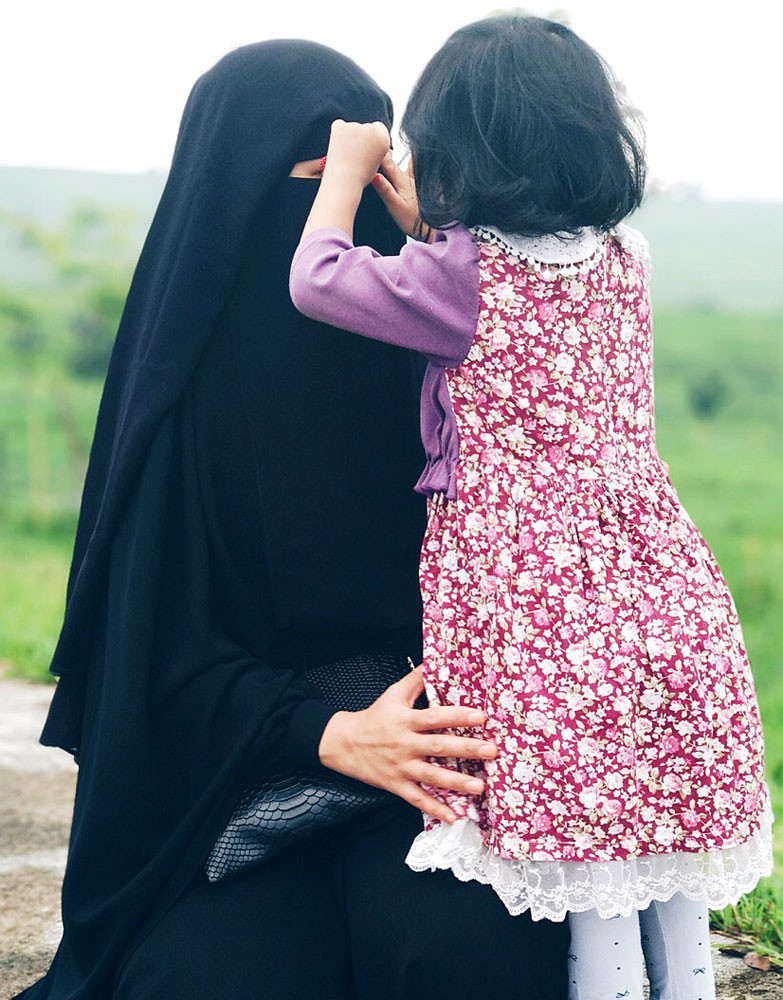Popular Reads
Top Results
Can't find what you're looking for?
View all search resultsPopular Reads
Top Results
Can't find what you're looking for?
View all search resultsFeminism and the critical reading of ‘hijra’
However, the construction of hijra mostly engages with the narratives of Islamic brotherhood.
Change text size
Gift Premium Articles
to Anyone
A
s a phenomenon of contemporary urban Muslim societies, the concept of hijra (migration) has left some questions. One of these is the feminist question regarding the common sense of hijra, including the imagination of Islamic brotherhood.
Although the recent concept of hijra is considered an alternative for those who need the more “fun” lifestyle that is considered to be un-Islamic, it, in fact, brings another category of being religious, pious or pure. Furthermore, hijra is becoming an emerging culture that is constantly reconstructed by the urban middle-class society or (young) celebrities in particular.
On the other hand, not all women find it easy to interpret the meaning of hijra beyond the existing definition, although the dominant discourse is conflicting with their lived experiences. This situation will create a dilemma for women: the alternative reading will be considered disobedience resulting in hardship, while following the common truth means being willing to be disconnected from reality.
Hijra is closely related to the spirit of ethical puritanism. Accordingly, it appears as a response to urban life which is full of immorality and worldly temptations. Hence, for those who embark on hijra, getting closer to God and religion is the best way to seek the glory of life.
At first glance, the concept of hijra is gender-neutral. However, the construction of hijra mostly engages with the narratives of Islamic brotherhood. In Arabic, the term is ukhuwah Islamiyah, but in English, it becomes the Islamic brotherhood. Lexically, the term “brotherhood” contains the biased meaning, in the sense that fellow Muslims are only men.
Moreover, the Islamic brotherhood agenda includes the political struggle, seizing influence, domination and power which are masculine. Thus, it is not surprising that the strengthening of Islamism has an impact on calls for the establishment of an Islamic political order and strengthens the idea of umma, or a single Muslim community (Hasan, 2009).
Even in Arabic terms, if ukhuwah develops in three concepts, namely fellow Muslims, fellow citizens and fellow humans, it still provokes further questions about who the citizens and humans are. Especially for humanity as an elementary matter, it often finds gender neglect and bias.
Furthermore, hijra engages the cultural power to construct the “new” identity that politically suggests us to revisit the imagined community in Anderson’s thought since the cultural discourse constructed in finding the notion of “us” could be contested.
Not only that, if the Islamic brotherhood becomes a symbol of political struggle because it is difficult to separate it from this aspect, then this symbolic language has the potential to become a space for crime in the form of conflict and instability (Ricouer, 1967). This also reflects how language politics works by not placing women in the grand existing narrative. In other words, women fall into the category of “the others'' who do not have a representative voice in the midst of public discourse.
One of the Islamic feminist agendas is to echo the women voices in the interpretation of the Quran (Wadud, 1999), but it does not mean that men’s interpretation is totally bad. In the context of Islam, women’s involvement is to emphasize the heterogeneous nature of the umma and to provide an alternative approach in managing reality.
However, the women's narrative is culturally seen as personal, irrational and insignificant. Subsequently, instead of valuing and writing their own experiences, women tend to find the doctrine as a given truth.
At the same time, women’s sisterhood is based on the common concern of women’s inferior position. In a wider context, the idea of transnational and global women’s movement is derived from the common oppression experienced by women in a patriarchal society.
Thus, through the feminists’ lens, it could be said that nothing new in the concept of hijra applies to women unless they are increasingly described as mothers and wives who do not equally have separated subjective needs. Also, when hijra is marked by wearing the hijab or modest clothes, it is not followed by the critical reflection of women’s experiences on sexual violence, but the common discussions regarding women’s obedience, morality and purity.
Those discourses are more apparent when the presence of women in public space and (social) media is not restricted as long as it is to perpetuate the common truths based on men’s viewpoint. In this case, the utilization of political practices of feminism plays a significant role to propose an alternative reading regarding the inclusive meaning of hijra.
It works in providing a balance in the sense that hijra is not only dominated by the agenda of political struggle managed through the masculine nuances of Islamic brotherhood. But the women’s common objective to eliminate discrimination and violence could be also recognized as part of the hijra agenda that results in the idea of equality, tolerance and peace.
Therefore, feminist scholars and activists need to keep up their involvement in the existing contestation of cultural power especially regarding the discourse of religion.
***
Desintha Dwi Asriani is a lecturer at the Department of Sociology, Gadjah Mada University, Yogyakarta. Hamzah Fansuri is a doctoral student at the Institute of Anthropology, Heidelberg University, Germany.










